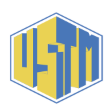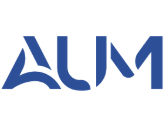Detailed introduction of Omar Bongo University:
Basic information
Founded in 1970 as the National University of Gabon, it was renamed Omar Bongo University in 1978.
Nature of institution: Public university.
Geographic location: Located in Libreville, the capital of Gabon, in the Estuary Province, the most densely populated province in Gabon.
Student size: In 2021, the school had 34,000 students.
History: Since its establishment, Omar Bongo University has experienced many challenges and changes. In 2010, the campus was in a serious state of deterioration, with swamps and weeds everywhere, reptiles inhabiting, and dormitory floors full of maggots. In the same year, the Minister of Education launched a renovation project, but the African Development Bank did not support the initiative, resulting in the continued deterioration of the school. In 2019, a large building on the campus called "The Bunker" was demolished, but drug trafficking moved from the building to the dormitory area. In 2020, the campus is still in poor condition, with old buildings, outdated computers, and no wireless network. However, the school is also actively taking measures to improve it. For example, in March 2019, the campus cafeteria was renovated and reopened, and mobile payment was used to purchase meals; in June 2019, the Portuguese Calouste Gulbenkian Foundation donated 5,000 books to the school; in August 2020, the school announced some renovations aimed at covering the exterior walls of campus buildings; in April 2021, the school announced that registration for the next year will be conducted entirely online.
School Strength
Faculty: It has about 500 academic staff.
Curriculum: It offers full-time undergraduate and postgraduate degree programs covering a variety of fields such as art, management, social sciences, economics, banking and finance, insurance, political science, business administration, archaeology, sociology, psychology, etc.
Educational philosophy: Committed to cultivating competitive and ethical professionals, emphasizing that students are academically competitive through professional teachers and high-quality learning resources, and focusing on cultivating students to solve challenges faced by communities in Gabon and around the world through research.
Key laboratories and disciplines: There is currently no detailed report on the school's key laboratories. However, in terms of disciplines, as the largest university in Gabon, its disciplines in the fields of social sciences and natural sciences have a certain influence in Gabon and have trained a large number of relevant professionals for the country.
Faculty: There is no clear report on the division of faculties, but from the perspective of course settings, it can be roughly divided into the Faculty of Humanities and Social Sciences, the Faculty of Science and Technology, and the Faculty of Medicine.
Ranking: There is currently no specific data on the ranking of Omar Bongo University in international or domestic authoritative rankings.
Fees: Tuition fees are relatively low and affordable, which is acceptable to both local and international students. The specific fees vary depending on the major and course.
Campus Environment
Buildings and Facilities: There are some old buildings on campus. Although some renovation plans were announced in 2020, the overall architectural style and facilities still need to be further improved and updated.
Library: The library is small, with only 200 seats in 2020, which is difficult to meet the learning needs of a large number of students.
Living Facilities: There is a cafeteria on campus. After the renovation in 2019, mobile cash payment was used to purchase meals, which provided certain convenience for students. In addition, there are some accommodation facilities on campus, but there have been safety issues such as drug trafficking.
-

Omar Bongo University
-

University of Science and Technology of Masuku
-

African University Of Management & Technologies, Libreville, Gabon
-

Mesoamerican University
-

Istmo University
-

Mariano Galvez University of Guatemala
-

Regional University of Guatemala
-

Galileo University
-

Francisco Marroquín University
-

Rafael Landívar University
-

University of the Valley of Guatemala
-

University of San Carlos of Guatemala
-

Technological Institute of Tlaxcala Plateau
-

Golfo University
-

Technological University of South Sonora
-

Technological University of Huejotzingo
-

Tizimín Institute of Technology
-

Chilpancingo Institute of Technology
